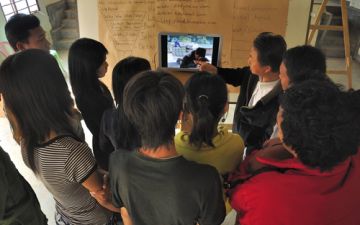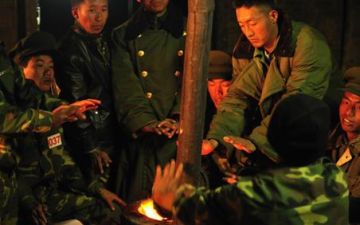The Himalayan foothills of northern Myanmar form the ancestral homeland of the Kachins, an ethnic group that has endured decades of brutal repression at the hands of the Burmese military. Starting in 1962, the Kachin Independence Organization (KIO) waged a low-grade insurgency against the Burmese military. Today, a tenuous cease-fire exists between the KIO and the Burmese, with the military in control of major towns and lucrative jade mines, while the KIO maintains autonomy in mountainous rural areas. With the Myanmar government increasingly preoccupied with unrest in the south, the Kachins are working to build the infrastructure of a viable nation state.
However, Kachin politics are splintered, with some groups demanding a more aggressive push towards independence. The Kachin economy depends on the export of natural resources to China. Although the opium trade has diminished in recent years, black market channels historically used to funnel drugs into China now facilitate the export of timber, gems and wildlife, trade that fosters political corruption and results in significant environmental damage. Journalists Ryan Libre and Tim Patterson travel behind the lines of the Kachin Independence Organization to explore the Kachin effort to protect the integrity of their homeland.

